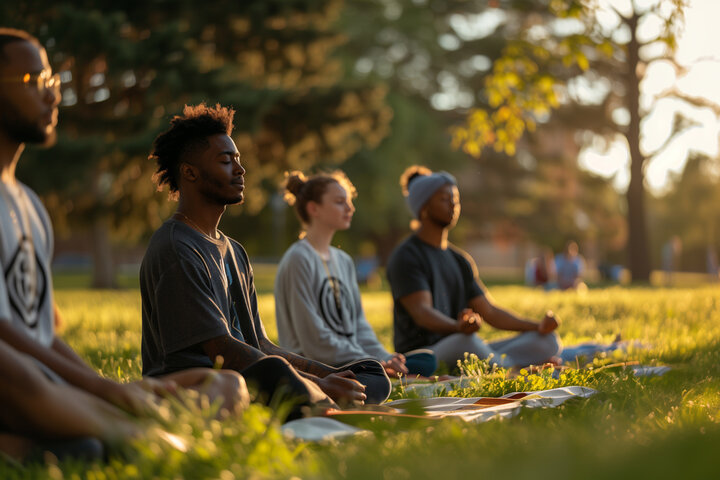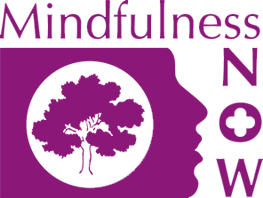Ungloving Ourselves: A Reflection on Mark Nepo’s Wisdom for Mindfulness and Compassion Teachers
In this reflection inspired by poet and philosopher Mark Nepo, we explore what it means to “unlove” ourselves — to take off the layers of protection that keep us from truly feeling life. This teaching offers a powerful lens for mindfulness and compassion teachers, reminding us that authenticity, vulnerability, and presence are at the heart of our work.
Recently, I came across a passage from Mark Nepo’s The Book of Awakening that stopped me in my tracks. It speaks with such tenderness and truth about our shared human tendency to protect ourselves — and the cost of doing so.
“We waste so much energy trying to cover up who we are when beneath every attitude is the want to be loved, and beneath every anger is a wound to be healed and beneath every sadness is the fear that there will not be enough time.
When we hesitate in being direct, we unknowingly slip something on, some added layer of protection that keeps us from feeling the world, and often that thin covering is the beginning of a loneliness which, if not put down, diminishes our chances of joy.
It’s like wearing gloves every time we touch something, and then, forgetting we chose to put them on, we complain that nothing feels quite real. Our challenge each day is not to get dressed to face the world but to unglove ourselves so that the doorknob feels cold and the car handle feels wet and the kiss goodbye feels like the lips of another being, soft and unrepeatable.”
— Mark Nepo, The Book of Awakening
The layers we wear
As mindfulness and compassion teachers, we often guide others to “be with what is,” to soften around experience, and to notice how resistance shows up in the body and mind. Yet this passage reminds us that we too wear invisible “gloves” — layers of protection that can keep us safe but also separate.
These gloves might be subtle: the professional persona we adopt when teaching, the desire to appear calm or wise, or the quiet fear that we must have all the answers. Beneath these layers, as Nepo reminds us, lie universal human longings — to be loved, to be safe, to have enough time. Mindfulness practice invites us to see these tender places clearly, without judgment, and to gently begin the process of “ungloving” ourselves — becoming real, authentic, and available to life as it is.
The courage to feel fully
The metaphor of the glove is a beautiful one for mindfulness. When we “wear gloves,” our contact with experience is dulled — we go through the motions of living, but we’re slightly removed from the raw immediacy of it all. Mindfulness asks us to take off the gloves, to allow the cold, wet, and soft textures of life to reach us directly.
In compassion practice, this openness becomes an act of courage. It’s not about exposing ourselves recklessly, but about meeting our own vulnerability — and the vulnerability of others — with gentleness. Compassion doesn’t mean fixing or rescuing; it means being willing to stay present, to touch the world with bare hands and an open heart.

Teaching as a practice of ungloving
For teachers of mindfulness and compassion, Nepo’s words hold a deep invitation. Teaching itself can be an act of ungloving — of showing up as a real human being, not as a polished instructor. When we model authenticity, honesty, and presence, we create a safe space for our participants to do the same.
In our teaching groups, sharing this quote could open a rich discussion about vulnerability in teaching. What “gloves” do we find ourselves putting on when we teach? How do we protect ourselves from discomfort, uncertainty, or emotional exposure? And what might it look like to gently take those gloves off — to teach from a place of grounded openness, where real connection can happen?
Living ungloved
Mark Nepo’s wisdom reminds us that mindfulness and compassion are not about striving to become a better version of ourselves, but about uncovering what is already here — the tender, unprotected, beautifully human heart.
To live “ungloved” is to live awake.
To teach “ungloved” is to model aliveness.
And to practice in this way — both in our personal lives and our teaching — is to remember, again and again, that the world is waiting to be felt.
Further reading and resources
For readers who wish to explore these themes further:
Mark Nepo Official Website – Learn more about Mark Nepo’s books, teachings, and poetry.
The Book of Awakening – Discover more from this timeless guide to presence and self-compassion.
Mindfulness Teachers Association (MTA) – Professional standards and resources for mindfulness teachers in the UK.
Oxford Mindfulness Foundation – Evidence-based research and training in mindfulness.
Centre for Mindful Self-Compassion – Training and resources for cultivating compassion for self and others.





